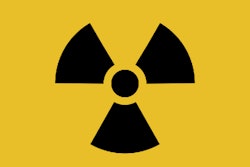
Federal officials canceled without explanation all upcoming meetings of an advisory panel that had been created by the Trump administration to make it easier to extract fossil fuels from publicly leased land and offshore sites.
The Royalty Policy Committee was established two years ago by former Interior Sec. Ryan Zinke. Its goal was to eliminate obstacles to drilling and mining faced by oil, natural gas and coal companies while ensuring a fair return to taxpayers.
The committee's charter expired April 21, Interior Department spokeswoman Molly Block said. Upcoming meetings scheduled in Pittsburgh later this week and Salt Lake City in August were canceled, she said.
A January meeting in Phoenix had been previously postponed.
The committee attracted sharp criticism from conservationists and others who alleged its membership was stacked in favor of the energy industry.
They asked a federal judge in Montana last year to disband the group and strike down its recommendations, including changes to how energy companies calculate what they owe taxpayers for pumping natural gas from public sites.
Block declined to give a reason for why the group's charter was allowed to expire. That left critics to speculate that it may have been disbanded because of legal pressures.
U.S. District Judge Donald Molloy ruled in January that the committee had an obligation to make its meetings and records open to the public.
"We will continue to work to stop the Trump administration and its industry allies from making public lands policy behind closed doors," said Charisma Troiano from Democracy Forward, which is representing the Montana-based Western Organization of Resource Councils in the case before Molloy.
But energy industry representatives said the committee could yet be revived under Zinke's successor, Interior Secretary David Bernhardt, a former lobbyist for oil and gas companies.
It's possible Bernhardt simply has not gotten around to renewing the committee's charter, said Kathleen Sgamma, president of the industry-backed Western Energy Alliance and an alternate member of the committee. Another possibility is that Bernhardt has decided to focus on recommendations already made, she added.
"It may be better to actually get some of those priority recommendations done within the next year and a half rather than identify new issues to tackle," Sgamma said.
The committee's members included industry executives; officials from energy states such as Texas, Wyoming and North Dakota; tribal representatives; academics and at least one industry consultant.
Earlier this month, a federal judge in California reinstated an Interior Department rule adopted under President Barack Obama that was intended to increase royalty payments from companies that extract fossil fuels from federal land. The Interior Department had revoked the so-called valuation rule during Zinke's tenure.
Watchdog groups and lawmakers long complained that taxpayers were losing hundreds of millions of dollars annually because royalties were being improperly calculated.






















